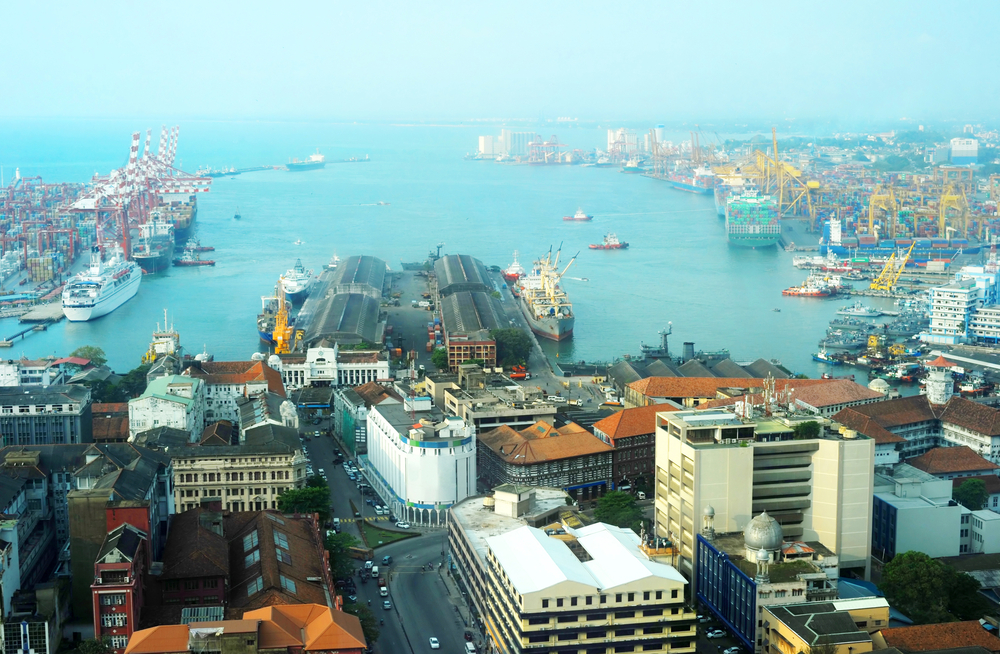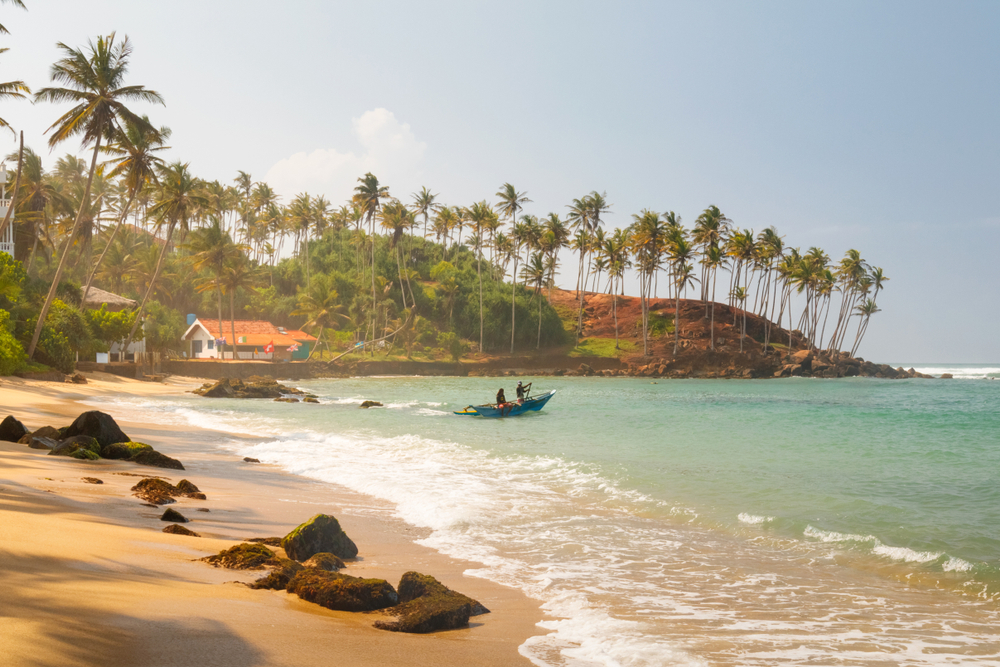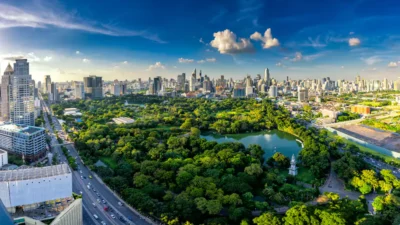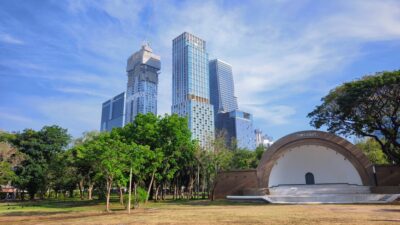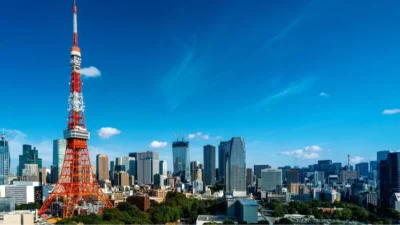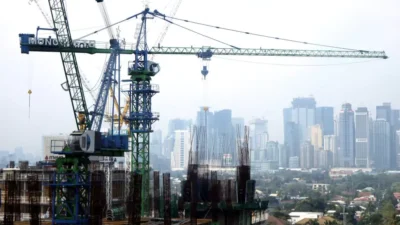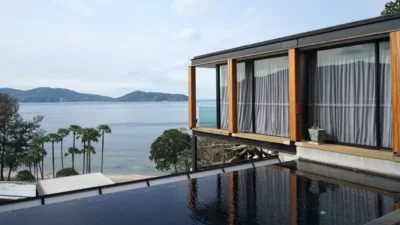Overcoming chaos: Dr. De Silva opens up about the future of Sri Lankan real estate
With recent terrorist atrocities threatening to slow down both investment and consumer interest in Sri Lanka, one of the nation’s leading real estate figures, explains why he remains optimistic that the market will soon recover
Before he became a real-estate entrepreneur, inspirational speaker, investor, and lover of fine wine, Nirmal De Silva was a prodigious scholar. The Sri Lankan’s extensive Australian studies saw him become a stellar student of business management at Monash University in Melbourne, and Perth’s Edith Cowan University, as well as a qualified accountant.
The Colombo-based polymath’s academic excellence and business acumen led to him becoming one of Sri Lanka’s leading lights in real estate in the 21st century. Also a business consultant whose focus ranges from sales and marketing to product management and operations, he has worked across dozens of companies in South Asia and Asia-Pacific.
Most notably in Sri Lanka, Dr. De Silva was, until 2017, the country manager for Regus, a flexible workspace provider which operates in more than 120 countries — a turning point in his career of which he remains “humbly proud.”
As an entrepreneur “driven by the vision of creating value to clients through innovation, strong international partnerships and bespoke service delivery,” he now acts as founder-CEO for Paramount Realty. The company provides advisory services to local and international clients in the commercial, residential, retail and mixed development segments of real estate. Meanwhile, his deep involvement in the market — “identifying industry trends and opportunities is my forte”, he says — extends to founding TYNA Consulting, a boutique real-estate development company which invests in SMEs, startups and social enterprises.
More: 6 places to visit and live in Galle
After the civil war ended in Sri Lanka 10 years ago, the South Asian nation’s profile as a tourist destination and real estate powerhouse grew significantly, with major investment from China in particular. Tragically the peace was shattered by this year’s Easter Sunday bombings across the country, stretching across the country from Negombo in the west to Batticaloa in the east, claiming 258 lives.
How can this small island-state and its property industry bounce back from such a shattering blow? At this pivotal juncture in Sri Lanka’s history, Dr. De Silva lays out his thoughts for the past, present, and future of development in the country he describes as a “land like no other.”
Broadly speaking, how would you describe the growth of the Sri Lanka property market over the last decade, since the end of the civil war? Which areas were the star performers, and what have been the most noteworthy developments?
Post-war Sri Lanka has seen tremendous growth in real estate and infrastructure. A quick glimpse of the skyline in Colombo exemplifies this clearly. We have seen the development not only in urban cities but also in suburban (Tier II) cities. The government’s Megapolis Development Plan is also focused on spatial transformation, smart city planning, addressing the issues of historical Adhoc urbanisation and helping to move the Sri Lankan economy to a “high income/developed” status. Such initiatives will definitely help the country.
One of the key projects in the country will be the Port City [in Colombo], which is a reclaimed land project. This is going to be a real game-changer, with great possibilities for foreign direct investment. In my view, if you thought the last 10 years have seen interesting developments in Sri Lanka, wait and see the opportunities over the next three to five decades.
What makes Sri Lanka a particularly attractive option for building luxury residences? Is it the growing middle class, or the influx of foreigners wanting to live in the country—or both?
Sri Lanka is a beautiful tourist destination that’s strategically located in the Indian Ocean. The country is clean and safe in comparison to its regional peers. Our hospitality is above par, and the opportunities that exist in the country for trade, business, investment, and entrepreneurship are phenomenal.
As a frontier market, we are moving into a middle income country. With the increase in disposable income and discerning lifestyle aspirations, the residential segment has seen significant demand over the years. From a vertical living perspective, more than 85 percent of residential investments have come from locals and the diaspora. Today, foreigners have no restrictions on owning an apartment. The government is also proposing to introduce more incentives, like five-year residence visas for investing in Sri Lanka. These incentives will definitely drive demand for property by foreigners over the next few years.
Even though the market has seen some sluggishness this year, in my view Sri Lanka will continue to be a hotspot for real estate investment in the medium to long term. Some critics argue that there is a property bubble in the country. I disagree
because the market is not speculative (like in the case of Dubai some years ago), and the majority of the investments are on an equity basis with very little debt involved.
“Sri Lanka will rise stronger than ever because we are a resilient nation. We have proven this in the past and we will definitely do the same in the present and future”
In a LinkedIn post earlier this year, you outlined five growth areas where Sri Lanka excelled as a desirable
destination for real estate—from waterfront properties to co-working spaces. In the light of the Easter Sunday attacks across the country, would you write that article any differently now?
In my view this will not change. Even though there will be some scepticism and risk averseness due to an isolated act of terror, and the elections which are due at the end of the year, I am confident that the five growth areas will continue to hold great opportunities for developers.
Where were you at the time you first heard about the bombings, and what was your immediate reaction?
I was in Sri Lanka. My initial reaction was that this was a bad dream, because we had 10 years of absolute peace after the civil war ended in 2009. Thereafter my feelings were a combination of shock and disappointment. However, within days I realised that Sri Lanka will rise stronger than ever because we are a resilient nation. We have proven this in the past and we will definitely do the same in the present and future.
The unity exemplified by all communities has been really inspiring. The threat of terror is a global phenomenon and Sri Lanka was, unfortunately, the victim on Easter Sunday. Security forces handled and took control of the situation to bring normalcy within a few days, and reassured all Sri Lankans, and the world at large, that the country is safe, and life is going on as normal.
What will be the immediate impact on the country’s real-estate market of the Easter tragedy, and how would you envisage the property market will attract investment in the short term?
Almost all industries will have a short term impact, with the real-estate market being no different. Developers will have some challenges meeting their borrowing commitments as a result due to cashflow related issues. On the other hand, there will be some fantastic opportunities to buy property due to developers or owners wanting to sell off at discounted prices. In other words, you may be able to invest in some real estate at below-market prices, thereby realising immediate returns.
Moving away from real estate, do you have any thoughts on what can be done to prevent further outbreaks of violence in Sri Lanka?
I think we need to place a high emphasis on national security and intelligence. We cannot afford to take things for granted anymore. In my view, the Easter Sunday attacks were due to some administrative lapses and a lack of pro-activeness. Political leadership has to play a pivotal role, with accountability being the core aspect. Having said that, I believe every citizen and community needs to play an important role to prevent such violence in the future. Continuous awareness, engagement, and collaboration between all stakeholders will be the key to success.
If you were a real-estate agent and you were trying to convince a buyer of the appeal of living in Sri Lanka, what are the key features you would recommend?
Sri Lanka’s strategic location, scenic beauty, highly literate and educated workforce, quality education institutions, close proximity to India, free-trade agreements with a number of countries, and economic growth potential are all reasons why you should invest in Sri Lanka and call it home. You will never get a country where you can visit pristine beaches, mountains, and historical ruins all within one day. So, if you have visited Sri Lanka, then investing in real estate becomes a virtual no brainer!
This article originally appeared in Issue No. 155 of PropertyGuru Property Report Magazine
Recommended
Why Asia’s mixed-use developments are the future of real estate
Dynamic integrated communities are fusing real estate with commercial, leisure, and other amenities
Transforming cities worldwide: Surbana Jurong’s vision for the future
Surbana Jurong excels in master planning, infrastructure, and urban development
Inside Asia’s commercial real estate: The cities thriving and those facing tough times
Shifting consumer preferences, and fluctuating economic policies mean commercial real estate investors in Asia must remain agile
Why young Asians are choosing singlehood and reshaping real estate trends
Marriage is out, and singlehood is in as young Asians subvert convention to explore alternative paths in real estate


